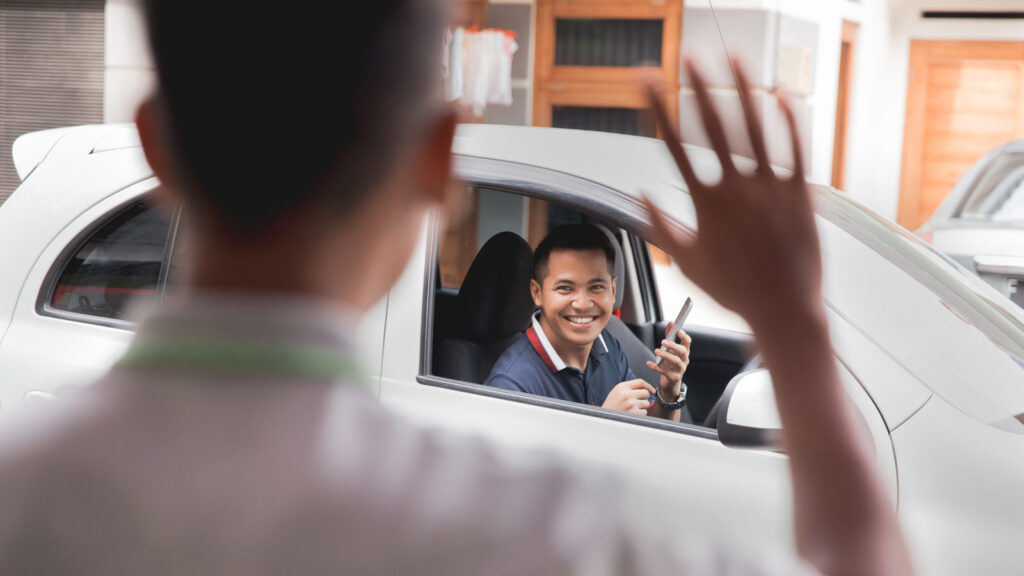Driver’s License Verification for Shared Mobility – Enhancing Security and Trust
What is shared mobility?
Shared mobility refers to transportation services that multiple users share, such as ride-hailing applications, car-sharing services, bike and scooter rentals, and other flexible options for travel. The objective is to ease congestion, lower costs, and reduce environmental impact by encouraging efficient vehicle use. According to The Business Research Company, the shared mobility market is predicted to grow from $343.24 billion in 2024 to $631.76 billion by 2029, at a CAGR of 13.3%. Statista mentioned that shared mobility services such as ride-hailing, bike-sharing, and car-sharing have grown in popularity due to their flexibility and affordability, particularly among urban residents looking for efficient ways to commute.
Driver’s license verification
Driver’s license verification ensures that individuals using shared mobility services have valid and authorized driving licenses. This process includes checking the authenticity of the driver’s license, validating identifying information, and detecting any document modifications or forgeries. Advanced methods like biometric authentication and database cross-referencing improve accuracy and security.
Why driver’s license verification is crucial for shared mobility
Verifying driver licenses in shared mobility services is essential for several reasons:
Safety and security
It ensures that only qualified and licensed individuals can operate vehicles, directly contributing to road safety and reducing risks and liabilities. Operators or organizations can mitigate the risk associated with unqualified drivers, thereby improving the safety of passengers and other road users.
It also protects passengers from criminals using fake IDs with malicious intentions such as robbery, assault, or human trafficking.
Fraud prevention
Beyond safety, driver’s license verification for shared mobility can deter identity fraud and prevent unauthorized use of fraudulent licenses, lowering the risk of stolen vehicles and unpaid rentals. This protects mobility providers from financial losses, false insurance claims, and legal liabilities resulting from illegal usage.
Regulatory compliance
Many jurisdictions require strict driver verification to ensure public safety, and failure to comply can result in fines, legal consequences, or service suspension. Identity verification is important in adhering to legal requirements imposed by local and national transportation authorities.
User trust and reliability
Driver’s license verification increases customer trust. Customers are more likely to feel secure and confident in using a service that enforces stringent measures. This reliability boosts brand reputation, increases customer retention, and promotes wider adoption of shared mobility solutions.
Implementing driver’s license verification in shared mobility
A reliable verification system is essential for shared mobility providers, and Keesing AuthentiScan provides a complete solution with seamless integration, offering both remote and face-to-face solutions. AuthentiScan uses advanced technology such as document scanning and Optical Character Recognition (OCR) technology and biometric face matching. Additionally, AuthentiScan can perform sanctions list screening to detect high-risk individuals, generate an audit trail for regulatory compliance, and comply with GDPR to guard user data and privacy.
Face-to-face ID verification
In shared mobility services, face-to-face verification may be required to ensure that only authorized individuals operate vehicles. This method is especially effective in settings where in-person interactions are common, such as car rental companies, vehicle-sharing stations, and fleet management operations.
Remote verification
Remote verification is ideal for online services or situations where users are not physically present for verification, such as ride-hailing or car-sharing services. Remote verification allows drivers to verify their identities using mobile apps or online platforms. This approach provides convenience by allowing users to complete the verification process at any time and from any location, offering a seamless experience for remote users while upholding security.
Mobile integration options
While Keesing does not offer a standalone SDK for mobile applications, it collaborates with ID Sugarfree to provide a fully integrated mobile solution that improves the ID verification process. This collaboration ensures that the mobile experience is reliable and secure for both the user and the service provider. ID Sugarfree’s mobile component captures images accurately, performs a face match, and reads RFID data when available, ensuring accurate identity verification in mobile environments.
Improve your ID Verification
Are you prepared to improve the safety and reliability of your shared mobility platform? Contact us via email or +31(0)207157825 to learn how AuthentiScan can integrate effortlessly into your processes while protecting your users.

